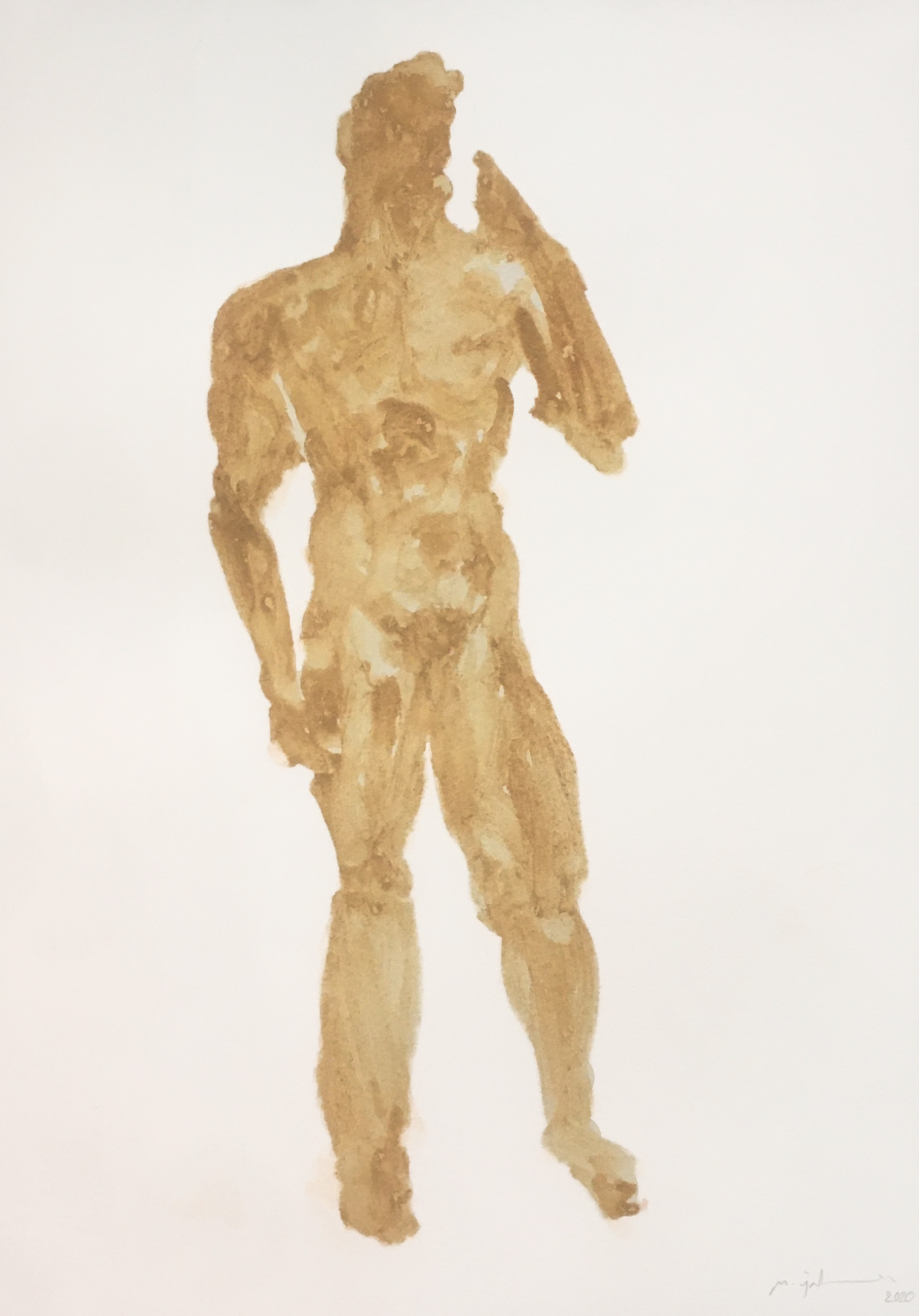


The title of this installation challenges the audacity of human intervention with nature. It poses the question of how far we have gone out of responsibility, morality and care.
When reading the word eudaimonia, which is based on the concept of well-being, it is clear that the promise of this word is not fulfilled in our days. Humans poorly control their well-being: food security is fragile, and both body and mind are always vulnerable. The body in this work is drawn on paper using pigments derived from soil. The image of David, which used to be a symbol of the perfect body, is reconsidered in this earthly tone, challenged in its power and perfection. The piece is centred by a table shaped like a cow whose four legs form the base. Fruits and vegetables are suffocated in plastic on their surface, and this begs the question of nourishment and environmental degradation. The head of the cow is depicted by a lump of clay in a plastic, and the udder is depicted by a black plastic bag that is hanging like a pendulum-like object- the symbol of the crisis of adulteration and contamination of milk. Traditional milk jugs go round the table like mute witnesses. In a strip of masking tape, the term eudaimonia is written and crossed out, indicating that it is missing in modern life. Two blackened gloves and a spoon are hung on the wall as a relic, deprived of their purpose, shaded by exploitation. These juxtapositions create a conversation between the installation: What does it mean to live well today? What is the position of morality when the systems that are supposed to offer well-being are tainted? What can we do to recover the concept of being good, in relation to ourselves, other people, and the earth?
This work was exhibited in a group exhibition ‘In (and out of) the stones of our minds’ in Dwip Gallery, Dhaka.